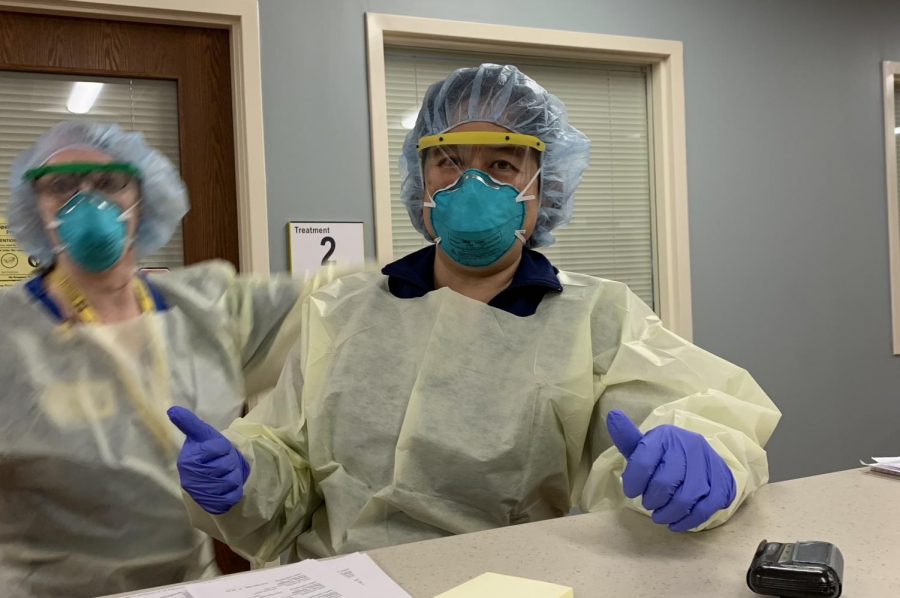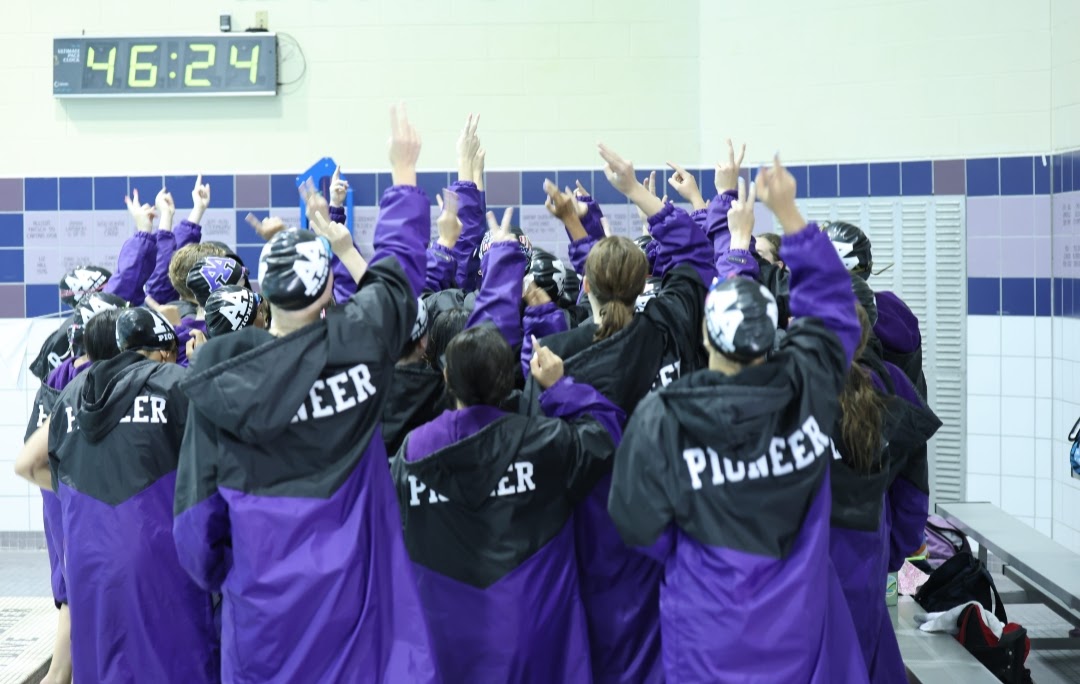Michigan Medicine Field Hospital
Dr. Grace Jenq gives an optimistic thumbs up to the camera wearing her PPE (Personal Protective Equipment). Soon after this picture was taken, she would become head of Phase 5 Post Acute Care at the Michigan Medicine field hospital.
April 15, 2020
As the number of COVID-19 cases being treated at Michigan Medicine began to rise rapidly, a solution for where to place all patients who had graduated from the ICU (Intensive Care Unit) came into concern. Michigan Medicine was expected to reach surge capacity and patients were going to have to go without treatment.
A joint decision by the University of Michigan along with FEMA (Federal Emergency Management Agency) was immediately put into place to create a field hospital in order to accommodate patients. These would be patients who had previously been on the general medicine floor in the main hospital, but who had gotten to a point where they don’t need so much daily nursing and medical care. They would utilize the field hospital to finish off their hospital stay and recuperate.
“We actually anticipated that we might need 500 beds in the field hospital which was going to be located in the University of Michigan’s Track and Field Center,” said Dr. Grace Jenq, the Associate Chief Clinical Officer for Post Acute Care.
“In order to operate the hospital, they were proposing that they would need 634 people to help staff the field hospital,” said Dr. Jenq.
This would be a mix of doctors, nurse practitioners, physician assistants, registered nurses, nursing assistants, pharmacists, respiratory therapists and physical therapists.
The staff would be working 24 hours a day, seven days a week.
Luckily, after the Michigan analytic team looked at predictions over the last two weeks, the peak seemed to have subsided, the curve was flattened and Michigan Medicine would not have to necessarily open up the field hospital.
“We are in stand-down mode. They will probably take it down at the end of April,” Dr. Jenq said.
As it stands currently, the track and field area is covered by a plastic material in order to protect the ground underneath. The tables, chairs and cots would have been installed a few days before the field hospital would become operational.
“The field hospital was put together by our doctors and nurses who have military backgrounds,” Dr. Jenq said, “They are used to being able to do things rapidly and we have to give them a lot of credit for planning all of this. Those who have served in the military are very skilled at operationalizing somethings so rapidly.”










